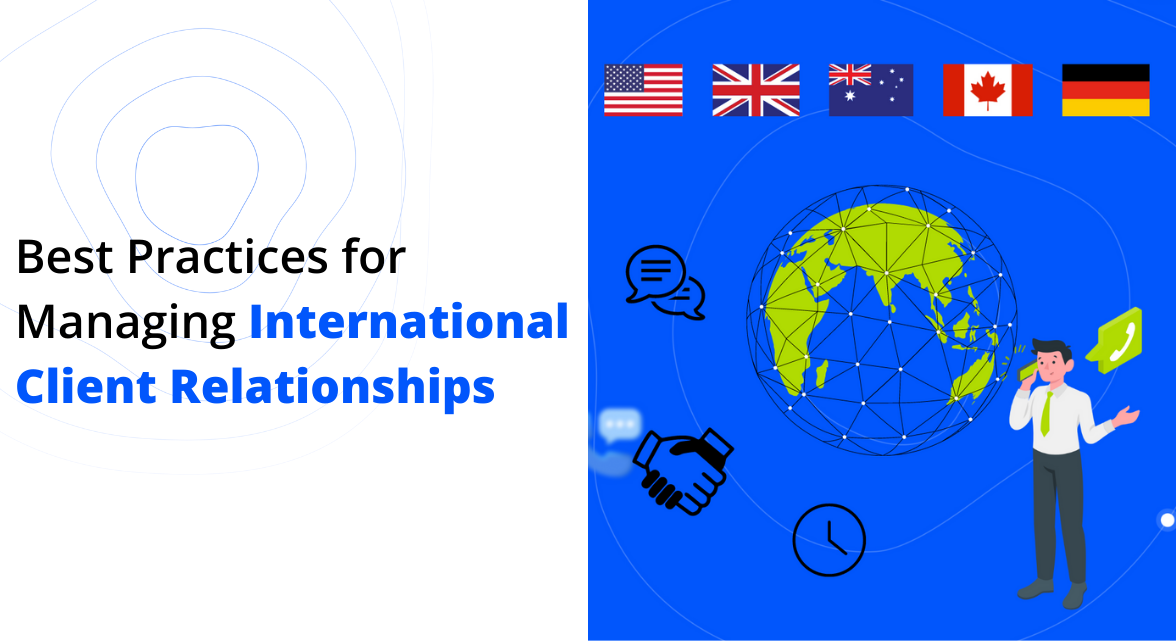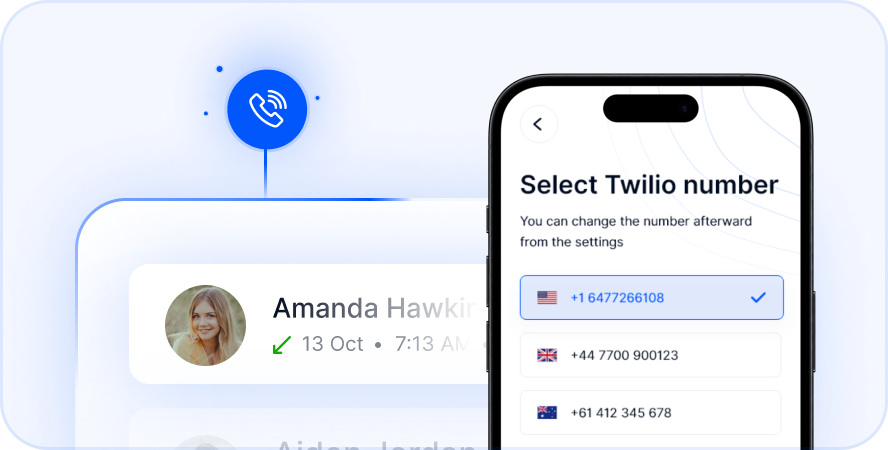
Managing client relationships across international borders offers exciting opportunities but also presents unique challenges. Building strong, lasting client relationships in the global marketplace requires more than just providing a good service or product. It demands cultural intelligence, clear communication, and a strategic approach to client relationship management. Successfully navigating these complexities is essential for growing your business on a global scale.
Developing solid partnerships with clients in different countries goes beyond simple transactions. It involves building mutual trust, respecting diverse cultural norms, and ensuring consistent, transparent communication despite geographical distance and time differences. According to a report by Deloitte, companies focusing on international expansion need to prioritize understanding cultural nuances to succeed. Handling cross-border relationships effectively can lead to greater client loyalty, repeat business, and valuable referrals, establishing your business as a reliable global partner.
1. Understand Cultural Differences
When working with clients from different countries, understanding their culture is crucial for successful client relationships. What works in one country might not work in another. Cultural differences affect how people communicate, make decisions, and approach business deals.
Tips:
- Do some research: Before you start working with a new client, learn about their culture, business customs, and what they expect in a professional relationship.
- Adjust your communication style: Some cultures value direct communication, while others prefer a more polite, indirect approach.
- Respect their time zones: Scheduling meetings at times that suit both parties shows that you respect your client’s time.
For example, while Americans often value direct and fast communication, Japanese clients may prefer a more formal and slower-paced discussion. Knowing these differences can prevent misunderstandings.
2. Mastering Clear and Consistent Communication
Effective communication is the lifeline of any relationship, especially across borders. Time zones, language nuances, and different preferred methods can create barriers. Proactive and clear communication bridges these gaps.
- Choose the Right Channel: Discuss and agree upon preferred communication methods. Some clients might rely on email for formal updates, while others prefer instant messaging apps for quick queries. Video calls are often valuable for building personal connection.
- Structure Your Message: Keep your language simple and clear. Avoid jargon, complex sentence structures, and colloquialisms that might not translate well. Confirm understanding by asking open-ended questions.
- Schedule Regular Check-ins: Consistent updates are vital. Plan regular meetings or send progress reports at agreed-upon intervals. This keeps everyone informed and prevents surprises.
- Leverage Reliable Tools: Using robust communication platforms designed for international use simplifies connectivity. Tools that offer stable calls, clear audio, and integrated messaging streamline your interactions globally.
Reliable communication tools are critical for managing international clients smoothly. A platform like Telfon provides virtual phone numbers and supports international calling and messaging to over 180 countries. This allows businesses to connect with clients seamlessly, managing calls and texts without the complications and high costs often associated with traditional international phone systems.

3. Building Trust Through Transparency and Reliability
Trust forms the bedrock of successful long-term international partnerships. When you cannot meet clients face-to-face frequently, being transparent and consistently reliable becomes even more important.
- Set Clear Expectations Upfront: Clearly define project scope, deliverables, timelines, and pricing from the beginning. Ensure all parties understand and agree to the terms to prevent future misunderstandings.
- Deliver on Your Commitments: Consistently meet deadlines and fulfill all promises. Reliability builds confidence and shows your client you are dependable.
- Maintain Open Book Communication: Share progress updates regularly, including challenges and successes. Transparency in reporting fosters trust, even when issues arise. Address concerns promptly and honestly.
- Be Accountable: If mistakes happen, acknowledge them, take responsibility, and outline steps to correct them and prevent recurrence. Accountability reinforces your credibility.
Showing clients you are honest and reliable through consistent actions and clear communication builds a strong foundation of trust. This trust is crucial for navigating the complexities of international business relationships and fosters loyalty over tips.
Navigating Practical Challenges and Growth
Beyond the core relationship pillars, managing international clients involves addressing practical challenges like time differences and language barriers, while also strategically investing in the relationship’s future.
4. Managing Time Zones Strategically
Time zone differences can seem challenging, but with careful planning, they can become an advantage. You can potentially offer support across broader hours or ensure project continuity while your client’s team is offline.
- Plan Meetings Thoughtfully: Use world clock tools to find meeting times that overlap reasonably for all participants. Alternate who takes the less convenient time slot if necessary.
- Structure Asynchronous Work: For significant time differences, rely on clear documentation and project management tools. Provide all necessary information for your client to review and act upon when they are online.
- Set Availability Expectations: Clearly communicate your working hours and expected response times. Provide alternative contacts or procedures for urgent issues outside your availability.
- Document Everything: After meetings or significant communications, send summaries detailing decisions made, action items, and deadlines. This reduces confusion caused by communication delays.
Respecting your client’s time and planning your communication and work around time zones demonstrates professionalism and helps the relationship run smoothly. It shows you are committed to making the partnership work logistically.
5. Overcoming Language Barriers Effectively
Even if English is the common business language, variations in fluency and understanding can lead to misinterpretations. Making an effort to minimize language barriers improves communication accuracy and strengthens the relationship.
- Speak Clearly and Slowly: Use simple vocabulary and avoid complex sentences. Pause frequently to allow time for processing information.
- Confirm Understanding: Regularly check that your client has understood your points. Ask them to summarize or rephrase to ensure clarity.
- Utilize Translation Tools Cautiously: For simple messages, online translators can help, but be aware they are not always accurate, especially for nuanced or technical language. Avoid relying on them for critical communications.
- Consider Professional Assistance: For important documents, contracts, or complex discussions, using a professional translator or interpreter is often a wise investment to ensure accuracy and avoid costly mistakes.
Some communication tools offer features that can help navigate language differences. Platforms with multi-language support in their user interface or customer service can make the tool itself easier for international clients to use, indirectly improving the communication experience.
6. Staying Informed About Local Dynamics
Each country has its own unique market influences, including political stability, economic conditions, regulatory environments, and social trends. Understanding these local dynamics is vital for adapting your strategies and providing relevant support.
- Monitor Local News: Stay informed about significant events or changes in your client’s country. Economic shifts, new regulations, or political developments can directly impact their business and potentially your partnership.
- Understand Industry-Specific Factors: Research how your client’s specific industry is regulated or operates within their local market.
- Be Flexible and Supportive: If your client faces challenges due to local market issues, be empathetic and flexible in finding solutions or adjusting project plans. Show you are a supportive partner, not just a vendor.
- Seek Local Expertise: Consider consulting with local partners or experts if you need deeper insights into specific market conditions or cultural norms.
Demonstrating awareness of your client’s specific local context shows you are invested in their success and understand the unique environment they operate in. This builds confidence in your ability to navigate global complexities together.
7. Investing in Long-Term Partnership
Viewing international clients as long-term partners, not just transactional customers, changes the focus of your relationship management. Building enduring partnerships requires consistent effort and a commitment to mutual growth.
- Prioritize Relationship Building: Dedicate time to building personal connections where appropriate, beyond strictly business discussions. Understanding their goals and challenges on a deeper level strengthens the bond.
- Provide Ongoing Value: Look for opportunities to offer insights, resources, or support that go beyond the initial contract. Position yourself as a trusted advisor.
- Seek and Act on Feedback: Regularly ask clients for feedback on your services and communication. Use their input to improve your processes and demonstrate that their opinion is valued.
- Explore In-Person Visits (When Possible): While not always feasible, meeting clients in person can significantly deepen the relationship and build stronger rapport than virtual interactions alone.
Focusing on nurturing the partnership for the long term builds loyalty and can lead to increased business opportunities, referrals, and a stronger global reputation based on reliability and trust.
8. Utilizing Effective Collaboration Tools
Effective collaboration is key when teams and clients are geographically dispersed. The right tools facilitate project management, document sharing, and real-time communication, ensuring everyone remains aligned and productive.
- Choose Integrated Platforms: Opt for tools that offer a range of features, such as task management, file sharing, and communication channels, to keep everything in one place.
- Ensure Accessibility and Ease of Use: Select tools that are easy for both your team and your clients to access and use, regardless of their technical expertise or location. Cloud-based solutions are often ideal.
- Prioritize Communication Features: Reliable international communication is paramount. Tools offering features like stable international calling, messaging, and multi-device access are essential for seamless daily interactions.
Enhance Your Global Reach with Telfon
For seamless international client relationships, consider Telfon, a leading virtual phone calling app. As a robust cloud telephony solution, Telfon simplifies global communication for businesses across sectors like real estate, HR, and sales. It allows you to purchase virtual numbers for over 180+ countries, facilitating international calls, SMS, and even WhatsApp integration with multi-account support. Telfon’s features, including call recordings, bulk SMS, and 20+ language support, are designed to build trust and ensure clear, consistent communication, making it an essential tool for managing diverse client needs. With flexible pay-as-you-go pricing and availability on Google Play, App Store, and Chrome Web Store, Telfon helps you maintain strong connections and save on communication costs globally.
Using the right suite of tools enhances efficiency, improves transparency, and ensures smooth collaboration, making it easier to manage projects and maintain strong client relationships with international clients.
Frequently Asked Questions (FAQs)
Q1. What are the biggest challenges in managing international clients?
Key challenges include cultural differences, communication barriers (language, time zones), building trust remotely, and navigating different legal or market environments.
Q2. How can I build trust with international clients I rarely meet in person?
Build trust through transparency, consistency, reliability, and clear communication. Always deliver on promises, provide regular updates, be honest about challenges, and set clear expectations from the start.
Q3. What kind of communication tools are best for international clients?
Look for tools that offer stable international calling and messaging, support for multiple countries and time zones, features like call recording and virtual numbers, and potentially multi-language support. A reliable virtual phone system is highly beneficial.
Q4. How important is it to understand my client’s local market?
It is very important. Understanding local economic conditions, regulations, and cultural factors allows you to adapt your approach, anticipate challenges, and provide more relevant support, showing you are a knowledgeable and supportive partner.
Q5. Should I adjust my communication style for different cultures?
Yes, absolutely. Researching and adapting your communication style (e.g., direct vs. indirect, formality levels) based on your client’s culture is crucial for avoiding misunderstandings and building strong rapport.
Successfully managing international client relationships requires dedication, cultural sensitivity, and the right operational strategies. By focusing on understanding different cultures, maintaining crystal-clear communication, building trust through transparency, effectively handling time zones, and leveraging appropriate tools, you can cultivate strong, long-lasting partnerships across the globe. Embracing these best practices not only helps you overcome challenges but also positions your business for sustained growth and success in the international arena.












